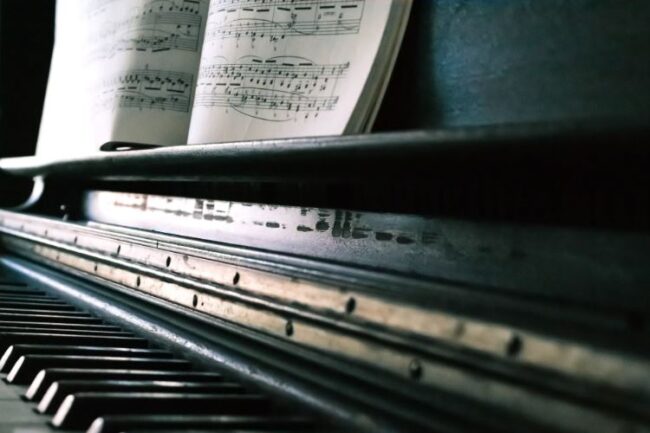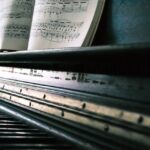In previous articles we revealed at what age Beethoven started playing keyboard and on what piano brands did he play in his adult life. There was one brand and one piano in particular that he cherished, his beloved Broadwood. In this article we learn about the history of this piano.
In his life Beethoven played many piano brands. This shallow brand loyalty was down to the fact that he was always in search for a better sounding piano, able to transmit his musical ideas into sounds. Not to mention that pianos in those days were not as enduring as they are today and Beethoven’s heavy hands were not easy on them either.
Thomas Broadwood, head of the Broadwood & Sons piano maker, traveled the Continent in 1817. He made sure to meet the Big Mogul in Vienna, Beethoven. He put in his journal that “he was kind enough to meet me and play for me, but was so deaf and unwell”. Upon returning to London he gave orders to send a Broadwood to Beethoven. It was a magnificent six-octave, two-pedal system with mahogany case. The piano was tested first by more well established pianists including former pupil of Beethoven, Ferdinand Ries. Above the keys a Latin inscription was placed: Hoc Instrumentum est Thomæ Broadwood (Londini) donum, propter Ingenium illustrissimi Beethoven. (This instrument is a gift by Thomas Broadwood (London) for the illustrious Beethoven.)
To send a delicate piano on a journey from London to Vienna was a big thing. It had left London in December 1817 and first it traveled on ship to Trieste (an Italian port in the northeast). From this port had to cross the Alps on contemporary primitive roads right until the showroom of Streicher (a Viennese piano brand). When it arrived seven months later to Vienna it was summer already and Beethoven was having a holiday in Mödling. The Streichers were not sure about the heavier British action mechanism and they made it tested by Ignaz Moscheles and British composer Cipriani Potter. They had different impressions, but finally it was declared good and operational.
Beethoven loved the piano! It was the strongest, loudest and boldest instrument he ever touched. Right away he wrote a letter to Thomas Broadwood, saying
“My very dear friend Broadwood—I have never felt a greater pleasure than in your honor’s notification of the arrival of this piano, with which you are honoring me as a present. I shall look upon it as an altar upon which I shall place the most beautiful offerings of my spirit to the divine Apollo. As soon as I receive your excellent instrument, I shall immediately send you the fruits of the first moments of inspiration I gather from it, as a souvenir for you from me, my very dear Broadwood; and I hope that they will be worthy of your instrument. My dear sir, accept my warmest consideration, from your friend and very humble servant—Ludwig van Beethoven.”
By that time Beethoven was almost completely deaf and this louder piano was more than welcome. He also attached a metal construction above it to amplify the sounds. When later Potter suggested that the instrument needs tuning Beethoven refused. A professional had to be sent from Broadwood, because he would not allow anyone else to touch the piano.
After a lifetime of wandering in 1825 Beethoven moved to a new apartment, yet again. His last residence was at the Schwarzpanierhaus. His Broadwood followed him there and was installed in the bedroom.
After Beethoven’s death Anton Spina, a music publisher purchased the Broadwood piano. In 1845 he gave the instrument to Franz Liszt, who kept it in his Wiemar home. Finally, one more trip waited for the piano, when Liszt gave the instrument to the Hungarian National Museum. In 1991 it was fully restored and it remains in the museum even today.








